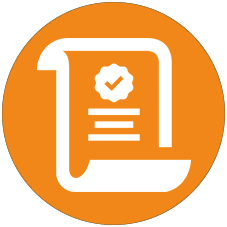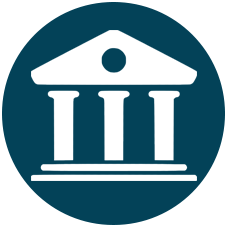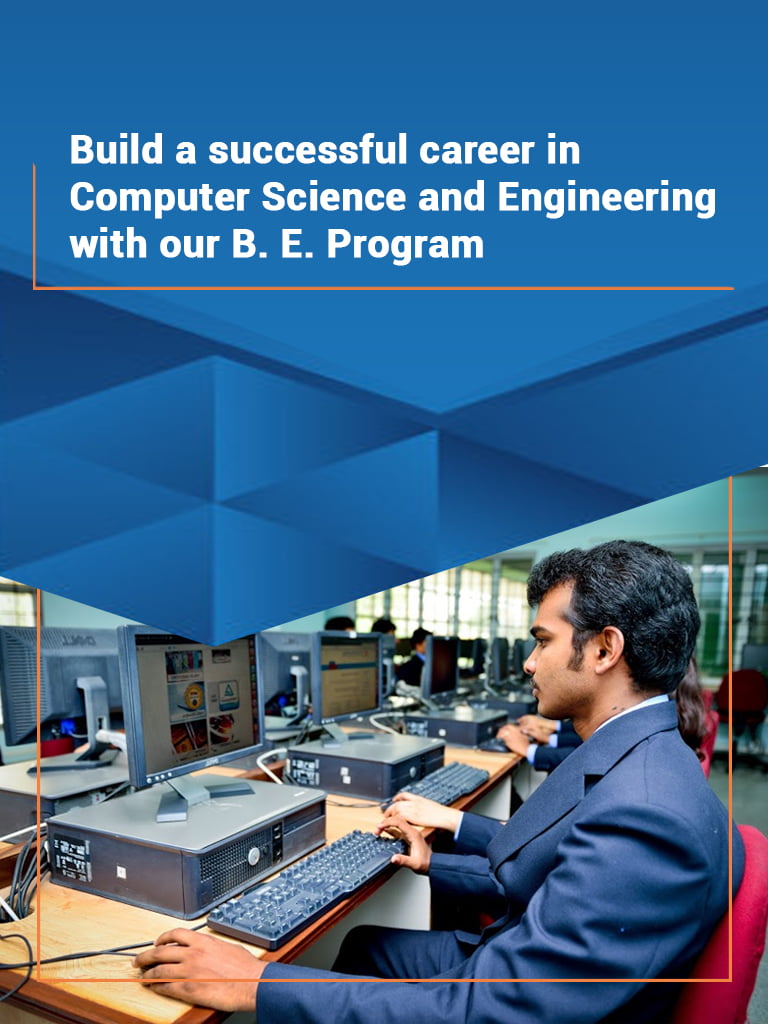Bachelor of Engineering
Undergraduate Programme

About Programme
Computer Science and Engineering deals with the study of design, computational processes, programming languages and theoretical foundation of information along with implementation of techniques.
Students learn about how to develop variety of hardware, synchronized application software and system software. They also gain knowledge about communication systems, IoT devices, software and hardware architectures of computer.
Computer Science Engineers can contribute to IT industry as Software developers, Software architects, Hardware engineers, Data management Engineers, Business system data base developers, testing engineers and also as Researchers in R and D labs.

Programme Overview
After 2/3 year of graduation, the students will have the ability to:
- Analyze, design and solve problems related to Computer Science and Engineering and adapt to changes in technology by self-learning
- Work effectively as individuals and in a team, exhibiting leadership qualities to meet the goals of a project or the organization
- Work with professionalism and concern for environment to meet the societal needs
- Engage in higher learning, leading to degrees or certifications
PROGRAM OUTCOMES (POs)
Engineering Graduates will be able to:
- Engineering Knowledge: Apply the knowledge of Mathematics, Science, Engineering Fundamentals, and an Engineering Specialization to the solution of complex engineering problems
- Problem Analysis: Identify, formulate, review research literature, and analyze complex engineering problems reaching substantiated conclusions using, first principles of Mathematics, Natural Sciences, and Engineering Sciences
- Design/Development of Solutions: Design solutions for complex engineering problems and design system components or processes that meet the specified needs with appropriate consideration for the public health and safety, and the cultural, societal, and environmental considerations
- Conduct Investigations of Complex Problems: Use research-based knowledge and research methods, including design of experiments, analysis and interpretation of data, and synthesis of the information to provide valid conclusions
- Modern Tool Usage: Create, select, and apply appropriate techniques, resources, and modern engineering and IT tools including prediction and modeling to complex engineering activities with an understanding of the limitations
- The Engineer and Society: Apply reasoning informed by the contextual knowledge to assess societal health, safety, legal and cultural issues and the consequent responsibilities relevant to the professional engineering practices
- Environment and Sustainability: Understand the impact of the professional engineering solutions in societal and environmental contexts, and demonstrate the knowledge and need for sustainable development
- Ethics: Apply ethical principles and commit to professional ethics and responsibilities and norms of the engineering practices
- Individual and Team Work: Function effectively as an individual, and as a member or leader in diverse teams, and in multidisciplinary settings
- Communication: Communicate effectively on complex engineering activities with the engineering community and with society at large, such as, being able to comprehend and write effective reports and design documentation, make effective presentations, and give and receive clear instructions
- Project Management and Finance: Demonstrate knowledge and understanding of the engineering and management principles and apply these to one’s own work, as a member and leader in a team, to manage projects and in multidisciplinary environments
- Life-long Learning: Recognize the need for, and have the preparation and ability to engage in independent and life-long learning in the broadest context of technological change
B.E. in Computer Science and Engineering
- Admission for the first year of the course shall be opened to the students who have passed the two years Pre-University Examination (Science) conducted by Karnataka State Pre-University Board or 10 + 2 School Programme of the Central Board (CBSE / ICSE) New Delhi with Physics, Chemistry and Mathematics as optional subjects and English as a subject of study or those who have passed any other examinations recognized by the VTU as equivalent there to.
- Admission to II year/ III Semester Bachelor Degree in Engineering/ Technology (Lateral Entry) shall be open to the candidates who are holders of a diploma or equivalent qualification as recognized by University
- Candidates other than those from Karnataka are required to obtain Eligibility Certificate from VTU, Belgaum.
- The Eligibility norms are periodically fixed by VTU with all relevant details of Academic Eligibility, Recognized Equivalent Courses for admissions to UG Courses as well as PG Courses and Institutions recognized for eligibility.
Career opportunities for Computer Science & Engineering Graduates
- Software Developer / Engineer
- Database Administrator
- Computer Systems Analyst
- Computer and Information Research Scientists
- Cyber Security Analyst
- Full Stack Web Developer
- Mobile Application Developer
- Big Data Engineer
- Data Scientist / Analyst
- Block Chain Developer

Why BNMIT for this course ?
1. Students are encouraged and motivated to secure university ranks (UG & PG Ranks -15)
2. Students are supported with technical and financial aid to participate in hackathons, project competitions, challenging platforms at national and international levels.
3. Skill Development Programme on emerging technologies is organized in the department through Industry Institute Interaction to make students industry ready.
4. Students get internship opportunities at top companies with stipend and also in R&D of international universities.
5. Students are members of Professional Bodies (CSI, BITES, ISTE, IEEE, IE )
6. Mentors counsel students for good professional growth and also for personality development through events like T5, TW5, WP5.
7. Students are encouraged to start technical and prototyping clubs of their interest and passion to learn team building, co-ordination and also peer instruction knowledge hub.

Programme Curriculum
1st Semester (Chemistry Group)
| Course Code | Course |
| 18MAT11 | Calculus and Linear Algebra |
| 18CHE12 | Engineering Chemistry |
| 18CPS13 | C Programming for Problem Solving |
| 18ELN14 | Basic Electronics |
| 18ME15 | Elements of Mechanical Engineering |
| 18CHEL16 | Engineering Chemistry Laboratory |
| 18CPL17 | C Programming Laboratory |
| 18EGH18 | Technical English-I |
2nd Semester (Physics Group)
| Course Code | Course |
| 18MAT21 | Advanced Calculus and Numerical Methods |
| 18PHY22 | Engineering Physics |
| 18ELE23 | Basic Electrical Engineering |
| 18CIV24 | Elements of Civil Engineering and Mechanics |
| 18EGDL25 | Engineering Graphics |
| 18PHYL26 | Engineering Physics Laboratory |
| 18ELEL27 | Basic Electrical Engineering Laboratory |
| 18EGH28 | Technical English-II |
Third Semester
| Course Code | Course |
| 18MAT31 | Transform Calculus, Fourier Series And Numerical Techniques |
| 18CS32 | Data Structures and Applications |
| 18CS33 | Analog and Digital Electronics |
| 18CS34 | Computer Organization |
| 18CS35 | Software Engineering |
| 18CS36 | Discrete Mathematical Structures |
| 18CSL37 | Analog and Digital Electronics Laboratory |
| 18CSL38 | Data Structures Laboratory |
| 18CPC39 | Constitution of India, Professional Ethics and Human Rights |
Fourth Semester
| Course Code | Course |
| 18MAT41 | Complex Analysis, Probability And Statistical Methods |
| 18CS42 | Design and Analysis of Algorithms |
| 18CS43 | Operating Systems |
| 18SC44 | Microcontroller and Embedded Systems |
| 18CS45 | Object Oriented Concepts |
| 18CS46 | Data Communication |
| 18CSL47 | Design and Analysis of Algorithm Laboratory |
| 18CSL48 | Microcontroller and Embedded Systems Laboratory |
| 18KVK49 | Vyavaharika Kannada (Kannada for communication)/ |
| 18KAK49 | Aadalitha Kannada (Kannada for Administration) |
Fifth Semester
| Course Code | Course | |
| 18CS51 | Management, Entrepreneurship for IT Industry | |
| 18CS52 | Computer Networks and Security | |
| 18CS53 | Database Management System | |
| 18CS54 | Automata theory and Computability | |
| 18CS55 | Application Development using Python | |
| 18CS56 | Unix Programming | |
| 18CSL57 | Computer Network Laboratory | |
| 18CSL58 | DBMS Laboratory with Mini Project | |
|
18CIV59 |
Environmental Studies | |
Sixth Semester
| Course Code | Course |
| 18CS61 | System Software and Compilers |
| 18CS62 | Computer Graphics and Visualization |
| 18CS63 | Web Technology and its Applications |
| 18CS64X | Professional Elective -1 |
| 18CS65X | Open Elective –A |
| 18CSL66 | System Software Laboratory |
| 18CSL67 | Computer Graphics Laboratory with Mini Project |
| 18CSMP68 | Mobile Application Development |
| — | Internship |
| Professional Elective -1 | ||
| Course code under 18XX64X | Course Title | |
| 18CS641 | Data Mining and Data Warehousing | |
| 18CS642 | Object Oriented Modelling and Design | |
| 18CS643 | Cloud Computing and its Applications | |
| 18CS644 | Advanced JAVA and J2EE | |
| 18CS645 | System Modelling and Simulation | |
| Open Elective –A (Not for CSE / ISE Programs) | ||
| 18CS651 | Mobile Application Development | |
| 18CS652 | Introduction to Data Structures and Algorithms | |
| 18CS653 | Programming in JAVA | |
| 18CS654 | Introduction to Operating System | |
Seventh Semester
| Course Code | Course |
| 18CS71 | Artificial Intelligence and Machine Learning |
| 18CS72 | Big Data Analytics |
| 18CS73X | Professional Elective – 2 |
| 18CS74X | Professional Elective – 3 |
| 18CS75X | Open Elective –B |
| 18CSL76 | Artificial Intelligence and Machine Learning Laboratory |
| 18CSP77 | Project Work Phase – 1 |
| — | Internship |
| Professional Elective – 2 | ||
| Course code under 18CS73X | Course Title | |
| 18CS731 | Software Architecture and Design Patterns | |
| 18CS732 | High Performance Computing | |
| 18CS733 | Advanced Computer Architectures | |
| 18CS734 | User Interface Design | |
| Professional Elective – 3 | ||
| Course code under 18CS74X | Course Title | |
| 18CS741 | Digital Image Processing | |
| 18CS742 | Network management | |
| 18CS743 | Natural Language Processing | |
| 18CS744 | Cryptography | |
| 18CS745 | Robotic Process Automation Design & Development | |
| Open Elective –B (Not for CSE / ISE Programs) | ||
| 18CS751 | Introduction to Big Data Analytics | |
| 18CS752 | Python Application Programming | |
| 18CS753 | Introduction to Artificial Intelligence | |
| 18CS754 | Introduction to Dot Net framework for Application Development | |
Eighth Semester
| Course Code | Course |
| 18CS81 | Internet of Things |
| 18CS82X | Professional Elective – 4 |
| 18CSP83 | Project Work Phase – 2 |
| 18CSS84 | Technical Seminar |
| 18CSI85 | Internship |
| Professional Elective – 4 | |
| Course code under 18CS82X | Course Title |
| 18CS821 | Mobile Computing |
| 18CS822 | Storage Area Networks |
| 18CS823 | NoSQL Database |
| 18CS824 | Multicore Architecture and Programming |

How To Apply ?
B.E. in Computer Science Engineering
Route 1:
KCET (KEA)
- KCET- Counseling.
- Register for Counseling.
- Documents for Verification.
- Final Seat Selection.
Route 2:
COMEDK
- COMEDK UGET- Counseling.
- Register for Counseling.
- Documents for Verification.
- Final Seat Selection.
Route 3:
Management
BNM Institute of Technology does not encourage admissions through any agents or anybody other than college office and also has not entrusted any person or agency or support agency for making admission to the college. BNMIT will not be held responsible for any such kind of malicious claim of any person, agency or any supporting agents. Students and parents are clearly instructed not to approach any outsider and the college will not be responsible for it.




